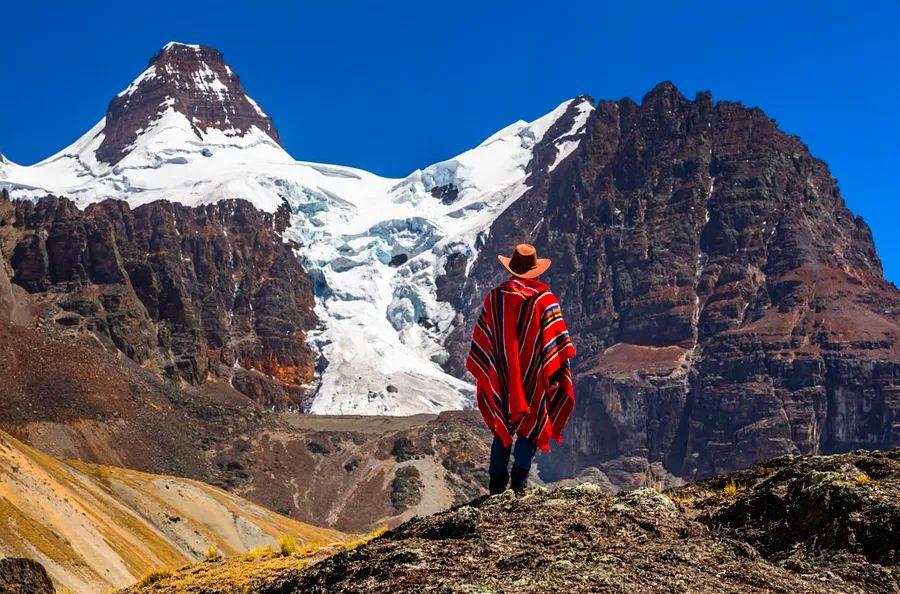Do I need a visa to visit Bolivia?

Bolivia, with its breathtaking national parks, enchanting cities, vibrant Indigenous heritage, and stunning landscapes—from soaring Andean peaks and high-altitude lakes to sparkling salt flats and lush Amazon rainforests—is a true travel hotspot.
Choosing to visit is a no-brainer, but navigating the entry process can be a bit more complicated. Here’s a helpful guide to Bolivia's entry requirements, including details on tourist visas, extending your stay, and applying to work or study.
Which nationalities require a visa for Bolivia?
The good news is that Bolivia’s entry requirements are straightforward and hassle-free for most travelers. Many nationalities don’t need a tourist visa; you'll simply receive a free entry stamp allowing a 30-day stay upon arrival at any Bolivian international airport or land border. However, US citizens must apply for a visa.
Countries that enjoy visa-free entry include the UK, most EU and EEA nations, Canada, Australia, New Zealand, Japan, and many South American countries. For further details, reach out to your local embassy or consulate.
US citizens (along with some other nationalities) must obtain a visa prior to travel.
US travelers need an expensive tourist visa to enter Bolivia. The visa costs $160 and permits stays of up to 90 days each year, remaining valid for 10 years.
In principle, these visas can be obtained upon arrival and paid for in either US dollars or bolivianos (the local currency). However, some airlines may not allow you to board without having secured a tourist visa in advance.
It's highly recommended to acquire your visa ahead of time. You can apply online through the Bolivian Ministry of Foreign Affairs’ website or at the Bolivian embassy in Washington DC (or through your local Bolivian embassy or consulate).
Travelers from China, India, and Taiwan are required to purchase a 30-day visa upon arrival in Bolivia (up to $160). Additionally, citizens from certain Asian, African, and Middle Eastern nations must obtain 'official permission' from Bolivia’s Ministry of Foreign Affairs prior to traveling. For more details, consult your local Bolivian embassy or consulate.
 Llamas adorned to attract attention at a Bolivian street market © Bisual Studio / Stocksy United
Llamas adorned to attract attention at a Bolivian street market © Bisual Studio / Stocksy UnitedFurther entry requirements for Bolivia
Regardless of whether you need a tourist visa, your passport must be valid for at least six months beyond your entry date into Bolivia. Minors traveling without their parents must present written consent from their parents, authorized by their local Bolivian embassy or consulate.
You might be required to demonstrate that you have enough funds to sustain yourself during your stay in Bolivia—showing a credit or debit card typically suffices. It's best to avoid displaying cash, as this might lead to a request for a bribe.
Keep your identification documents with you while in Bolivia
Travelers are officially advised to carry their passport and tourist visa at all times while in Bolivia. A safer approach is to carry photocopies instead of the originals, as petty theft is common and losing your passport can create significant complications.
The only exception to this is when you are near Bolivia's land borders. Authorities are vigilant about illegal crossings, so it’s important to have your actual passport and visa on you, even if you’re not planning to cross into a neighboring country.
 Participants in vibrant costumes at the colorful Carnival de Oruro © Marcelo Chacón Aracena / Getty Images
Participants in vibrant costumes at the colorful Carnival de Oruro © Marcelo Chacón Aracena / Getty ImagesHealth requirements for entering Bolivia
If you're arriving in Bolivia from a country where yellow fever is endemic—like Argentina, Brazil, Colombia, Ecuador, Paraguay, or Peru—you may be required to present a yellow fever vaccination certificate upon entry. Additionally, this certificate might be requested when traveling to areas of Bolivia below 2500m (8200ft) in elevation, including the Amazon Basin.
Be cautious of 'administration fees' at land borders
At some remote border crossings, officials might request an unofficial 'administration fee'—essentially a small bribe—to facilitate your entry into Bolivia. While there's no legal justification for this, it's often unavoidable. Generally, the simplest approach is to pay the 'fee' and proceed.
 A traveler on the shimmering salt flats of Salar de Uyuni © Kazuki Kimura / EyeEm / Getty Images
A traveler on the shimmering salt flats of Salar de Uyuni © Kazuki Kimura / EyeEm / Getty ImagesHow to prolong your stay in Bolivia
If you wish to remain in Bolivia for more than the usual 30 days, simply visit the immigration office in the nearest major city at least a week before your stamp expires.
You can extend your entry stamp for an additional 30 to 60 days at no cost by visiting the office in person, but keep in mind that the maximum time you can stay in Bolivia in a single year is 90 days.
Avoid overstaying your visa – doing so will result in a fine at the airport, border crossing, or immigration office, along with significant bureaucratic hurdles. You might also face restrictions on future re-entry.
Employment and education opportunities in Bolivia
If you intend to work or study in Bolivia, you'll need to apply for a specific type of visa and fulfill various requirements. The application process typically requires backing from a Bolivian employer or educational institution. Reach out to your local Bolivian embassy or consulate for more information on how to apply.

1

2

3

4

5
Evaluation :
5/5